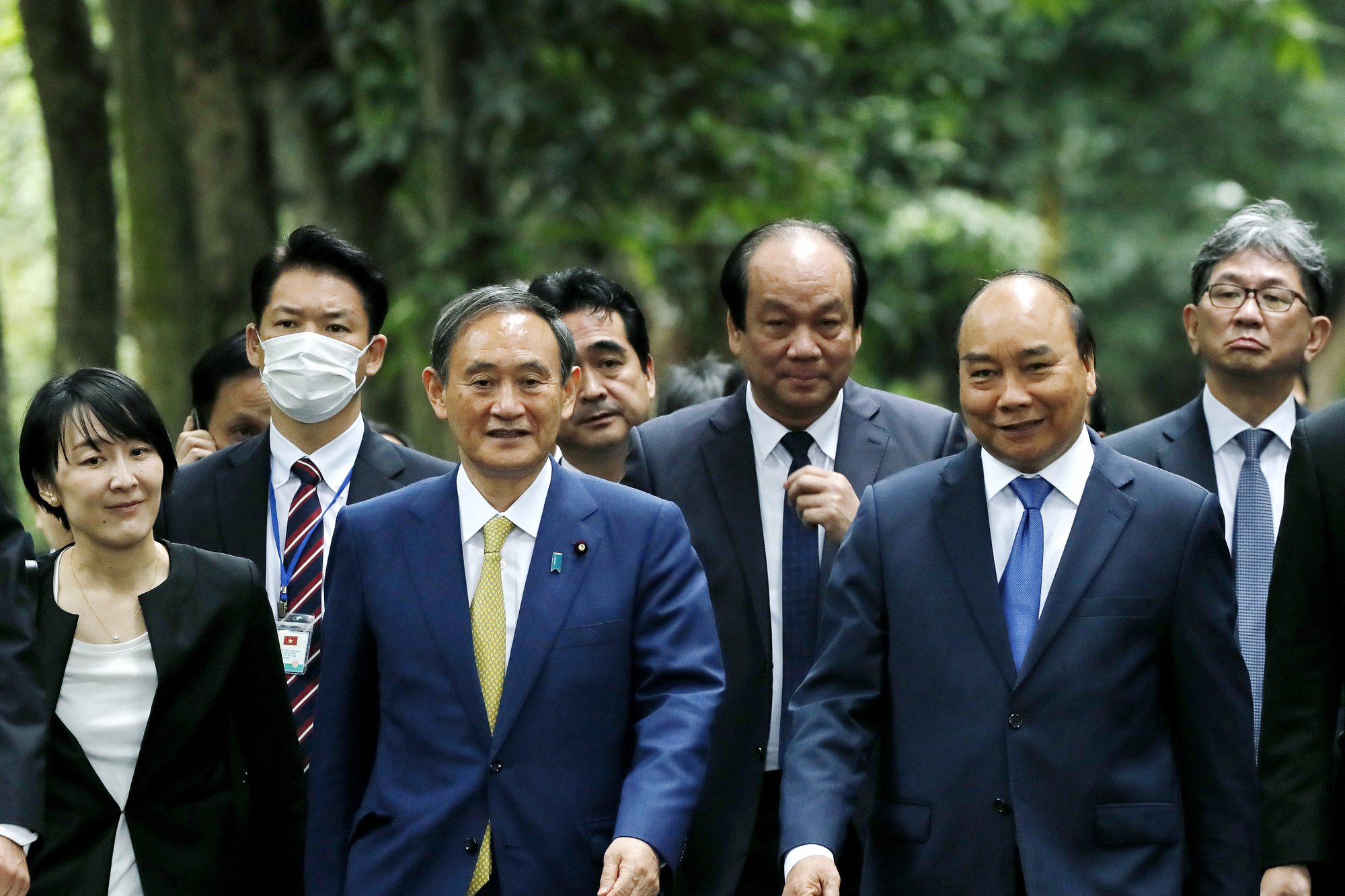Japan is looking closely at Southeast Asia to diversify production and contain Chinese growth
Vietnam and Indonesia were the destinations of the first State visit abroad by the new Japanese head of government Yoshihide Suga in October. An important signal which confirmed Japan’s growing interest in Southeast Asia. The year 2021 also marks the 10th anniversary of the Diplomatic Mission of Japan to ASEAN, established in Jakarta in 2011, as further proof of the intense and lasting alliance.
Only one month after he took office, Suga chose two key states in the region as his first contribution to the progress of Japan-ASEAN relations, strongly supported by his predecessor Shinzo Abe. “I too would like to continue deepening the friendship and cooperation with the people of ASEAN. Japan and ASEAN are equal partners and friends. We support each other by working side by side, learning from one another and working together in pursuit of growth,” said Suga in his speech to the students of the Vietnam-Japan University. On this occasion, the Japanese PM addressed essential issues for the consolidation of the partnership. He appreciated the mutual aid to face the health crisis and Japan’s commitment to the establishment of the ASEAN Center for Public Health Emergencies and Emerging Diseases. In addition, Suga assured that the implementation of Japan’s COVID-19 Crisis Response Emergency Support Loan will have a particular focus on the Indo-Pacific, including the ASEAN countries.
The strong link between Japan and Southeast Asia is based on the common need to establish themselves in the regional context and to invest in peace and stability of the Indo-Pacific in order to prosper. Premier Suga expressed strong support for the ASEAN Outlook on the Indo-Pacific (AOIP), as it shares the same values that also characterize Japan’s foreign policy strategy “Free and Open Indo-Pacific”, defined by the Abe administration. The ASEAN approach in AOIP emphasizes the centrality of international laws to quell disputes and the importance of transparency in regional relations. This position affirms a shared course of action with Japan and thus a common purpose that is precious for the development of a prosperous and peaceful future in East Asia.
The South China Sea dispute represents a key point in the relation between Tokyo and the ASEAN countries. By declaring Japan’s total opposition to any kind of escalation in the region, the Japanese PM fostered collaborative initiatives with ASEAN to establish compliance with international laws in the seas and oceans. Japan has supplied patrol vessels and maritime safety equipment to Vietnam and the Philippines. It also promoted the training of military personnel and the dispatch of experts to coastal nations along the region’s main sea routes, including Indonesia and Malaysia, to help strengthen their operational capabilities. Last October also marked the meeting between Suga and Indonesian President Joko Widodo. Both leaders stressed their intention to continue to work closely on regional challenges, in particular the issues about South China Sea and North Korea. All the topics addressed during the official visits were then confirmed by Suga during the 23rd Japan-ASEAN Summit Meeting, held in November 2020.
Interesting signals also come from the launch of the Supply Chain Resilience Initiative. The strategy conceived by Japan, with India and Australia as the main partners, will try to increase the resilience of the three countries’ supply chains by diversifying production towards ASEAN. The aim of this initiative is to reduce dependence from the Chinese production system. By partnering with countries such as ASEAN members, Japan intends to accelerate the economic evolution of the Indo-Pacific region to contain China’s strong growth. In this regard, the Regional Comprehensive Economic Partnership (RCEP) has combined once again ASEAN and Japan in the largest commercial area in the world. Through the implementation of the RCEP Tokyo will aim to strengthen its strategic partnership with ASEAN to balance Beijing’s weight in the agreement.
Joint efforts have also recently been directed towards the renewable energy sector. The Asian Development Bank and the Japanese Ministry of Economy, Trade and Industry have signed a memorandum of cooperation to reinforce their commitment to clean energy development in Southeast Asia. As the global agenda increasingly includes issues related to the ecological transition, governments around the world are feeling the urgent need to accompany this process. For its part, Tokyo is strongly focusing on the ASEAN countries in order to work together on these delicate and high-priority dossiers of common interest.
Japan thus continues to look closely at Southeast Asia even with the advent of the Suga leadership. The valuable commercial initiatives and the geopolitical dynamics at play will reinvigorate the Japan-ASEAN strategic partnership. The conditions for “building together the future of the Indo-Pacific region” are all there.






